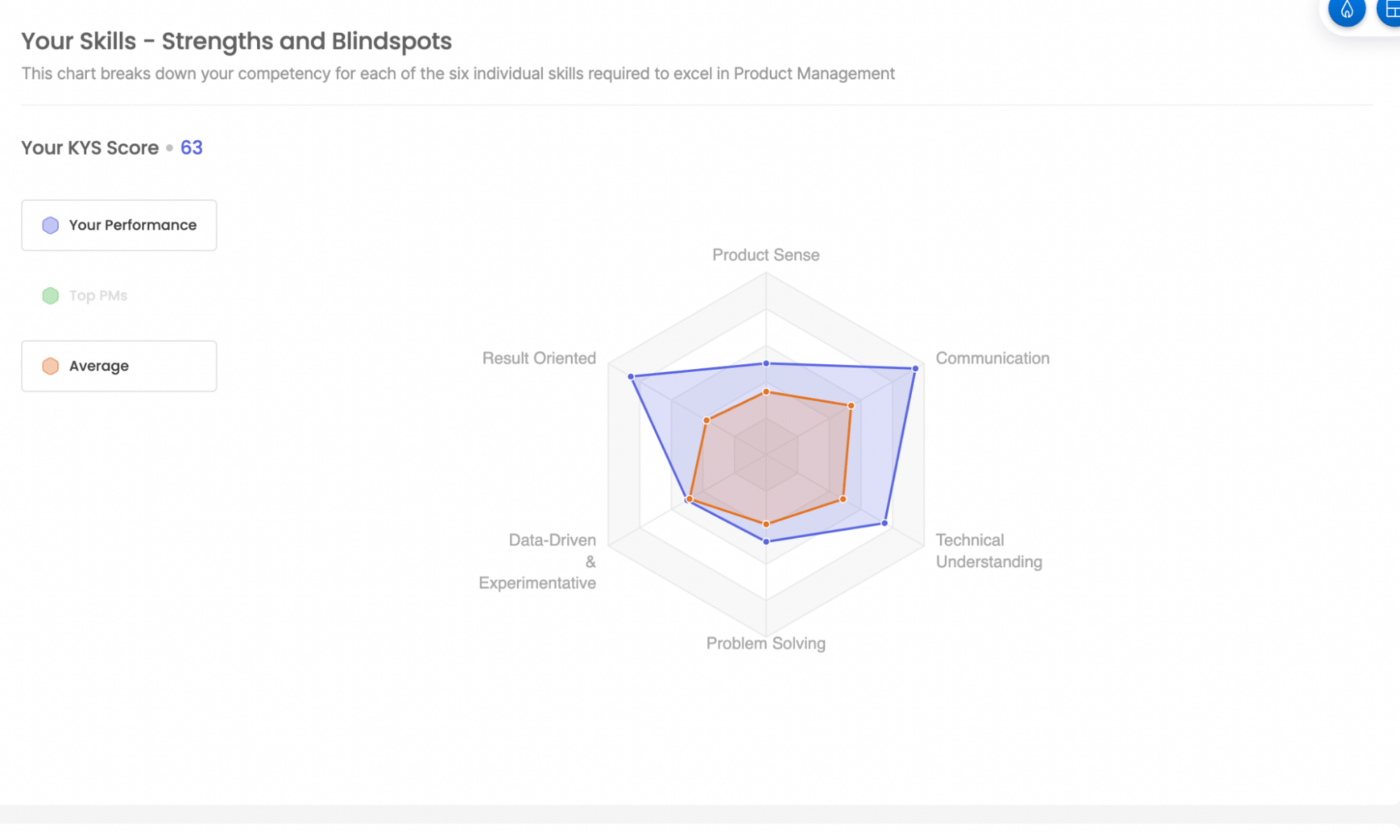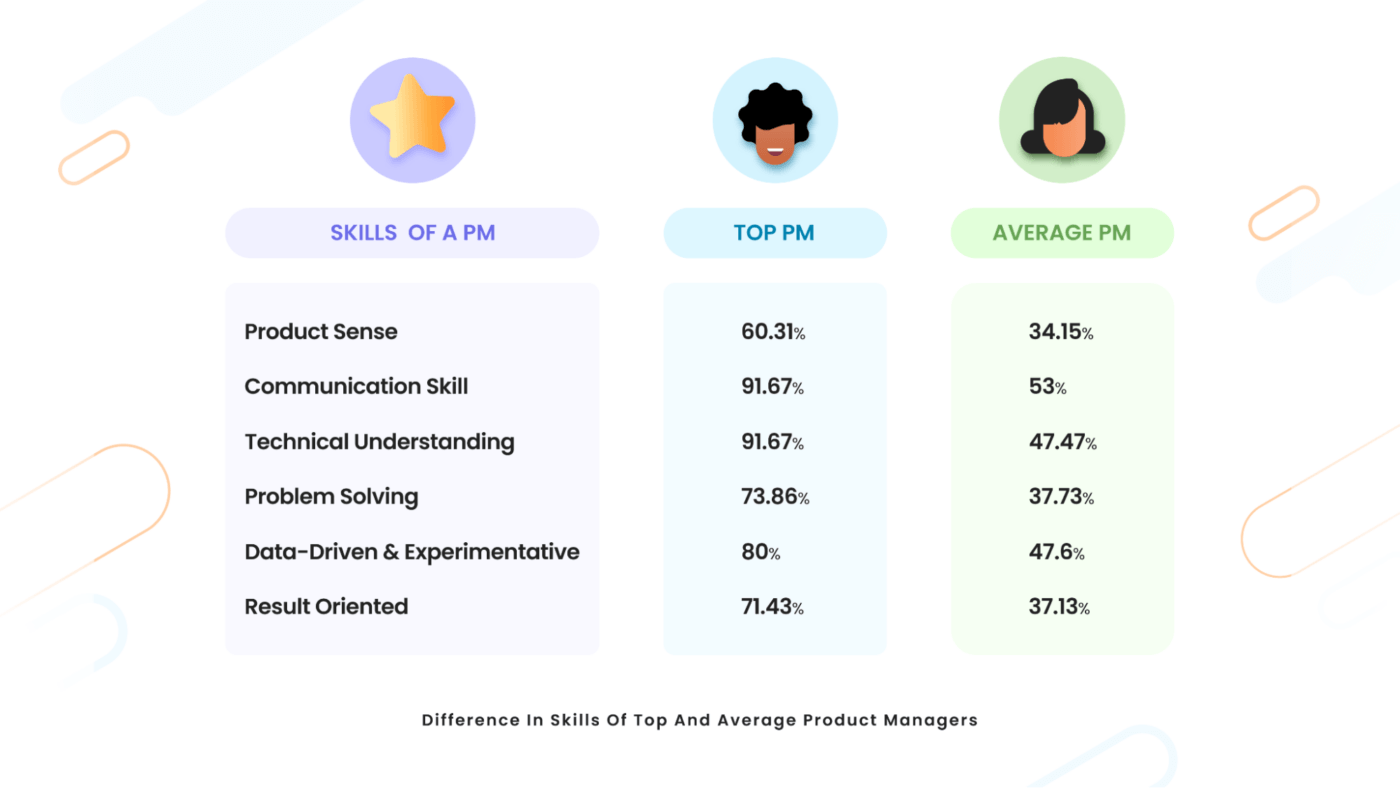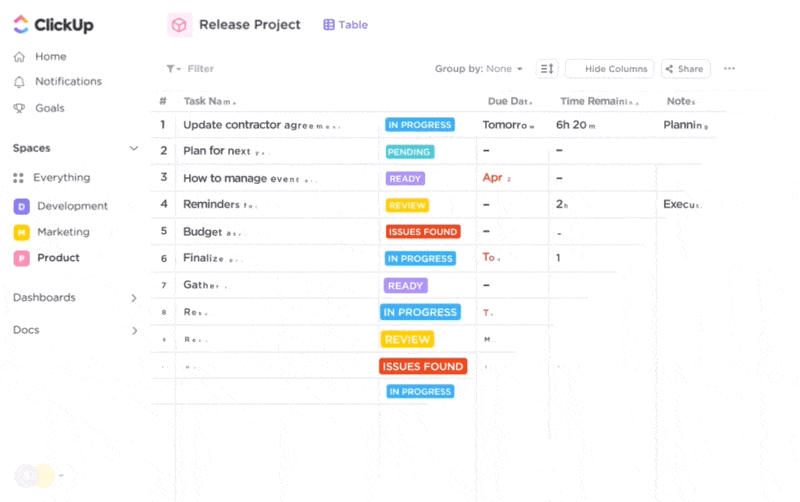Top 10 Product Management Skills Every Product Manager Should Own

Sorry, there were no results found for “”
Sorry, there were no results found for “”
Sorry, there were no results found for “”
Apr 06, 2023
8min read
Product Managers (PMs) need to master a lot of key areas to build products customers love. People who want to transition into a product role are drowning in a sea of articles trying to answer really basic questions like:
Finding the answer to these questions can be difficult with so much conflicting information out there. How do you know which piece of information will help you get answers to these questions?
After spending some time online, you will discover that product managers need multiple skills to succeed in their jobs. It’s a little overwhelming and intimidating.
How do you even know if you have these skills and can be a product manager? Follow along as we break down 10 important product management skills you need to succeed in your role!
You may be thinking, what skills do you need to start a career in product management? Or what are hiring managers really looking for? 🤔
To answer this question, our team from Upraised analyzed more than 200 product manager job descriptions (JDs) and identified 300 of the most common skills. We then clustered them into ten skills that are really the core of an entry product manager role.
We also consulted experts in the product management field, which helped us gather the key skills employers want when they shortlist candidates early in their careers.

The most important six skills that can help you transition into a product manager role are:
Here’s how the proficiency in these ten PM skills differs between top product managers from average product managers:

Here’s a product management glossary for you to know everything about product management before you read further.
Hard skills are acquired via formal education, training programs, or on the job. These are the hard skill needed to be a successful product manager:
Product sense is a product manager’s ability to understand the problem and identify all possible solutions and know which solutions to pick given the constraints like time, resources, budget, and user segment.
This is especially critical for technical expertise product managers. The deeper the domain knowledge, the better you can understand the universe of solution space for a given problem statement. It’s a skill that one can pick up and hone with time.
Check out these no-code tools for product managers!
As a product manager, you don’t need to learn to code, but you do need a basic knowledge of how products are built. It’s why you also should understand how to take care of your projects as they move through the product life cycle.
Additionally, know how to conduct market research to learn the market or industry trends. Conducting market research will help you write product requirements, define edge cases, and effectively work with the engineering team.
This lets you understand which requests are feasible and the amount of effort needed to build a feature for better prioritization. As a product manager, it’s critical to familiarize yourself with several product management tools like ClickUp.

Learning specific processes within these tools allow you to define product requirements and understand their shortcomings.
Soft skills are an individual’s ability to interact and relate with other people. Successful product managers possess the following core product management skills:
A product manager needs to get stakeholder buy-in for plans and projects. Having strong communication skills lets you influence and better communicate with others—including the sales team.
It also helps you manage and streamline product documentation. Communicating critical information allows all stakeholders to know the product development process is on track.
Problem-solving is the ability to break a complex problem into chunks and help identify the root cause.
As a product manager, you need to identify the right problem to solve before jumping into the solution. More often than not, you’ll deal with confusing and complex issues.
That’s why problem-solving skills are sought after for this type of role. Product managers are often in charge of transforming the problem into a clear problem statement that the rest of the business can understand.
Data is the new oil that fuels a customer-centric approach in every organization. Given how everything revolves around data, this skill allows you to regularly be open to new learnings.
This lets you know what’s working and what’s not. It is one of the important skills for product managers because data helps you answer questions like:
Being data-driven makes for a better trade-off between urgent and non-urgent tasks. This skill allows you to fine-tune your strategic thinking and prioritization skills.
And in the meantime, you become more confident with actual informed decisions with your data.
At the end of the day, it’s the result that matters.
Being result-oriented helps prioritize tasks that add the most value for the amount of time invested in completing them. You need to make the best use of available resources and complete tasks within the stipulated time, indicating you are result oriented.
Bonus: Learn how AI tools can help product managers!
The ability to empathize with users and have a user-centric mindset is critical for product managers to create products that deliver value and meet user needs, resulting in higher user satisfaction and adoption rates.
Effective delegation leads to building trust within the team and fosters teamwork, product managers can focus on strategic tasks and lead the overall product development process, resulting in more efficient and effective product development.
Critical thinking is a vital part of product management. Product managers use critical thinking to analyze data, evaluate options, make decisions and solve problems.
They must be able to identify potential risks and opportunities, generate creative solutions to complex challenges and think critically in order to develop the best product strategies. Product managers also need to be able to take calculated risks without sacrificing the quality of the product or endangering users’ safety.
Continuous learning helps product managers stay up-to-date with new technologies, market trends, and user behavior, enabling them to make data-driven decisions, create innovative products and deliver real value, and establish themselves as a strong product leader.
Start by learning a new product management tool like ClickUp!
Product management is a fascinating career path. To be a successful product manager, you need to develop skills to help you lead cross-functional collaborations between engineers, marketing and sales teams, firm executives, and users.
Now let’s understand how these skills contribute to making you a better product manager. The two types of skills that product managers need to excel in this field:
Both hard and soft skills are important when looking for a job. As a potential job seeker, know there will be certain soft skills and hard skills needed that you acquired in past experience.
These skills are called transferable skills. They indicate your ability to do the job, even if your profile does not match the job description 100%. Such skills make you an invaluable asset to any company.
The first step is to understand your proficiency level in each of these skills.
Start out by using the KYS (Know Your Self) test to see if you could become a product manager. This competency test reveals your behavioral and attitude traits based on a set of 49 questions. It will help you learn more about your strengths and blind spots across these ten core product manager skills!
If you score above 50 without any product background—that’s great! This means you have some of the skills in your current role to succeed as a product manager. But for those who score below 50, no worries!
That score simply means you need to work on your skills and the test will tell you about your blind spots to help. So how can you develop your skills to become a successful and competent product manager?
Whether you are someone who hails from a non-technical or technical background, there’s a course that can help you develop these skills. Career Accelerator Program by Upraised is curated just for aspiring product managers like you who dream of working in product-first companies.
This is a 16-week curriculum that gives you practical training and prepares you for the role of a product manager. Here’s how Upraised course preps you for a product manager role:
Once you’ve learned more about product management, use a project management tool like ClickUp to help you map your product vision, build product roadmaps, align team resources, and so much more.
ClickUp offers hundreds of features and a fully customizable platform to help you manage your work more efficiently and become a seasoned product manager. You can also take advantage of the learning tools and resources they offer, including product management blogs, a ClickUp guide for product managers, and webinars to help you manage your product lifecycle.
And if you’d like to get a solid framework to start with, ClickUp has product management templates ready for you to use.
So whether you’re looking into transitioning into a product management role internally, or starting a junior role for you, taking the time to level your skills and using the right tools like ClickUp and Upraised can help give you the edge you need to become a successful and competitive product manager.
Best of luck!
Guest Writer:

Janvee Menghrajani is a Content and SEO Specialist at Upraised.
© 2026 ClickUp